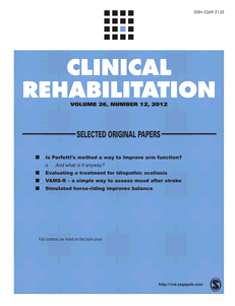
PHYSICAL THERAPY & REHAB
The effect of tai chi on risk factors for falls in postmenopausal women with osteopaenia
This report has been verified
by one or more authors of the
original publication.
Clin Rehabil. 2010 Dec;24(12):1080-90
61 postmenopausal women, >65 years of age, diagnosed with osteopenia were randomly assigned into 1 of 2 intervention groups, a tai chi group or a control with no intervention, to determine if tai chi reduced the risk factors for falls in postmenopausal women with osteopenia. The results of the study indicated that following 24 weeks of intervention, subjects in the tai chi group experienced a significant increase in stride width when compared to those in the control, but no significant difference in balance parameters, functional strength or rate of falls. Results from the SF-36 quality of life test indicated that patients in the tai chi group experienced significant improvement in general health, vitality, and bodily pain.
Unlock the full ACE Report
You have access to {0} free articles per month.Click below to unlock and view this {1}
Unlock NowCritical appraisals of the latest, high-impact randomized controlled trials and systematic reviews in orthopaedics
Access to OrthoEvidence podcast content, including collaborations with the Journal of Bone and Joint Surgery, interviews with internationally recognized surgeons, and roundtable discussions on orthopaedic news and topics
Subscription to The Pulse, a twice-weekly evidence-based newsletter designed to help you make better clinical decisions
Exclusive access to original content articles, including in-house systematic reviews, and articles on health research methods and hot orthopaedic topics
Or upgrade today and gain access to all OrthoEvidence content for just $1.99 per week.
Already have an account? Log in


Subscribe to "The Pulse"
Evidence-Based Orthopaedics direct to your inbox.
{0} of {1} free articles
Become an OrthoEvidence Premium Member. Expand your perspective with high-quality evidence.
Upgrade Now













































































